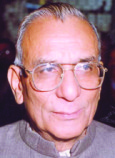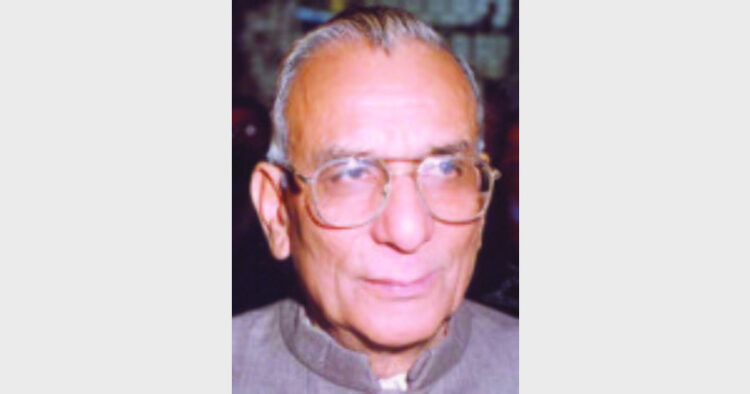Congress diminished by scandals, skyrocketing prices and governance deficit
BJP regaining ground in urban India?
Shyam Khosla
 ABP News-AC Nelson survey conducted on the eve of UPA II’s third anniversary finds that Congress-led Government is diminished by financial scandals, sky-rocketing prices and governance deficit. It has already lost the support of 31 per cent of voters that gave it a second term in 2009. If the findings of this survey are to be believed, ruling party’s share in popular vote in urban India has come down from 30 per cent to 20 per cent in the last three years. Given that no pre-poll survey conducted two years before the polls can be on spot particularly if it has a limited reach of just 28 major cities and metros. There is, however, no reason to disbelieve that it reflects major changes in public mood during the last three years. The exercise does enjoy credibility because of AC Nelson’s record and its claim that that it used scientific tools to collect data and the conclusions were drawn after rigorous scrutiny. Further, the survey’s findings are validated by the trends thrown up by the Congress party’s rout in numerous assembly and local body elections held in the past two years from Punjab to Karnataka and from Bengal to Maharashtra and Goa. The national mood is clearly against the Congress and this proposition can by no means be dismissed as Opposition day-dreaming or the “vicious propaganda unleashed by a hostile media”.
ABP News-AC Nelson survey conducted on the eve of UPA II’s third anniversary finds that Congress-led Government is diminished by financial scandals, sky-rocketing prices and governance deficit. It has already lost the support of 31 per cent of voters that gave it a second term in 2009. If the findings of this survey are to be believed, ruling party’s share in popular vote in urban India has come down from 30 per cent to 20 per cent in the last three years. Given that no pre-poll survey conducted two years before the polls can be on spot particularly if it has a limited reach of just 28 major cities and metros. There is, however, no reason to disbelieve that it reflects major changes in public mood during the last three years. The exercise does enjoy credibility because of AC Nelson’s record and its claim that that it used scientific tools to collect data and the conclusions were drawn after rigorous scrutiny. Further, the survey’s findings are validated by the trends thrown up by the Congress party’s rout in numerous assembly and local body elections held in the past two years from Punjab to Karnataka and from Bengal to Maharashtra and Goa. The national mood is clearly against the Congress and this proposition can by no means be dismissed as Opposition day-dreaming or the “vicious propaganda unleashed by a hostile media”.
You don’t need a survey to find out the reasons behind the old lady’s fall from public grace, though the survey did confirm what was widely known. Ever rising prices, though a “great economist” is at the helm of affairs, have made a huge hole in the pockets of not only the poor but also of the middle classes. The super rich and the ruling elite are getting fatter while hunger and poverty are multiplying at a terrifying rate. Massive financial scandals have outraged the public opinion and the “honest” Prime Minister’s helplessness to boot out the corrupt from the political and bureaucratic establishment—presumably because of their links with the boss—has caused widespread disgust and trust deficit. Economy is a shamble with the massive fall of rupee in the global market. Food prices are skyrocketing despite a bumper harvest. Denial and drift are the hallmark of the Government in this season on “petrol bomb”. There is no dynamism left in this government. Government promises one thing and does exactly the opposite. They issue instructions to observe austerity but spend billions of rupees of public funds on lavish foreign trips, vulgar celebrations and media advertisements. Policy paralysis and governance deficit have angered even staunch supporter of the Congress. Undue interference in the administration and skewed policy initiatives of Sonia Gandhi’s National Advisory Council have angered the masses to no end.
What is more shocking for the dynasty and its loyalists is that the heir-apparent, the Queen and the Prime Minister in office trail in urban India’s preference for the highest office of the land to a person who is demonised day in and day out as the “polarising figure” in Indian politics. Narendra Modi’s score for the most popular politician is 17 per cent minus plus 4 per cent age points as compared to last year’s survey by the same agency. Dr Manmohan Singh is the runner up with 16 per cent minus, 5 per cent points down to last year’s score. Rahul Gandhi’s score has dipped from 19 per cent to 13 per cent and Sonia Gandhi is down from 14 per cent to 9 per cent. While Modi’s popularity appears to have increased during the last one year despite vicious media campaign by “secularists” and Islamists, there is 5 plus per cent point loss in popularity of each of the three top Congress leaders. What will be the Congress party’s fate in the 2014 elections if these trends continue for the next two years? Whether Modi will be the next PM is not a relevant question at this point as neither of the two alliances has so far nominated its prime ministerial candidates. BJP, the survey says, is “inching ahead” and may get 28 per cent votes if elections were held now. Does a gain of 8.72 per cent points amounts to an “inch” or a leap forward? A swing of two/three percentage points decides the fates of parties in multi-cornered elections. BJP managed only 19.29 per cent of popular votes in last elections—a loss of 3 per cent points as compared to 2004 when the party had managed 22.16 per cent votes. If this urban voter survey holds good, the BJP, as of now, is ahead of the Congress by 10 per cent points. It would be a total reversal of fortunes for the two national parties. The Congress managed to cross the 200-seats mark in 2009 by securing a little more than 10 percentage points lead over its arch rival. According to the survey, the BJP will be able to hold on to 84 per cent of its vote base, while the shift to Congress will be only 2 per cent of BJP voters. It reflects BJP’s better capacity to hold on to its base as compared to the Congress as the latter is predicted to lose around 1/3d of the urban voters.
The survey’s finding that there is a pro-BJP trend among urban voters is a validation of the perception that the party is regaining the ground it lost in the first decade of the 21st. century. It is good news for the party but it can do better if it introspects to find answers to questions that confound its cadres and well wishers. Is it true that the BJP, like the Congress, suffers from dissentions and that many of its leaders work at cross purposes? Isn’t it a fact that ambivalence on party’s core ideology, values, probity and economic policies has sent across a negative message? Why the public perception that commitment to core values, idealism and selfless-service to the society and the party—that were the hallmarks of BJS and BJP—are now on the decline? Is it a fact that no BJP leader, as of now, is perceived to be an icon of the ideological parivar as stalwarts like Pt. Deen Dayal and Atal Behari, L K Advani and Dr Murli Manohar Joshi used to be? A constructive response to these critical and uncomfortable questions will provide the party with an opportunity to win back the confidence of the masses and become a far better alternative to the ruling alliance. Additionally, the BJP will have to bring more cohesion in the party at all levels and reorient the party structure so that it becomes an instrument of public service rather than a machine to fight elections as it is fast becoming.?














Comments